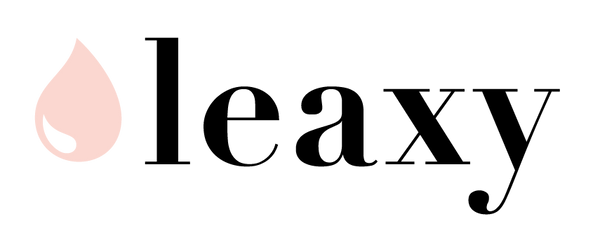Leaking breasts is a common and normal pregnancy and postpartum symptom, but that doesn’t mean it doesn’t come with negative feelings.
For many women, it might come as a surprise when you suddenly feel a wet spot due to leaking breast milk. Although leaky boobs are universal, we don’t talk about this phenomenon as often as it’s happening.
According to a study done with 61 breastfeeding mothers, 66% of nursing mothers still experienced leaking breasts at six months postpartum, and most mothers expressed negative feelings about leaking.
When pregnant or postpartum, it can be extremely frustrating to have to remedy an additional symptom that requires your attention.
Feelings of isolation can also arise with an oversupply of breast milk, a factor that can also lead to leaking breasts. An article published in the Journal of the American Board of Family Medicine found that, “mothers experiencing oversupply often report feelings of frustration and loneliness. Having too much milk is often viewed as desirable, which can lead to inadequate support from friends and family, as well as by medical personnel who fail to grasp the severity of the problem.”

Whether leaking breast milk or having an oversupply of it, women can often feel like we shouldn’t talk about these difficulties out of embarrassment or out of fear that we look like we’re complaining about something that should be a “blessing”. In reality, all feelings are valid.
In talking about these women’s health concerns, we begin to help more women feel connected to a community that understand the feelings they’re going through. Connection is key in beginning to combat the complex feelings that can come with pregnancy and postpartum.
So, in the name of all things leaking boobs, let’s talk more about them. Let’s answer some questions about leaky breasts.
Why are my breasts leaking during pregnancy?
In preparation of baby being born, the function of the breasts is to produce milk to nourish infants, according to an article from the Library of Medicine. The milk being produced is something called colostrum. “Colostrum is a thick, yellowish-white fluid which can be expressed from the breast by the third trimester,” the article reads.
During pregnancy, breasts may begin to leak colostrum, which is normal and common. There’s nothing to worry about, but it can lead to frustration. To help remedy your leaks, you can use disposable or washable nursing pads to help absorb leaking breast milk. We suggest these nursing pads as a way to help absorb leaks while still keeping nipples soft and divine.
Why are my breasts leaking postpartum?
After baby arrives, the production of breast milk usually begins between two to four days after the birth. Breast milk is often white in color and is thinner than the colostrum produced prior. Any breast milk that’s a different color is usually no cause for concern, but you can learn more about breast milk colors and their meaning here.
One of the most common reasons for leaking breast milk is, due in part, to what’s called the let-down reflex. The let-down reflex occurs when baby is sucking at the breast, which triggers hormones that cause the breast to push out or “let-down” the milk. Until the body becomes adept to the art of releasing milk at precisely the right time (which doesn’t happen for all women), let-down and leaking can occur anytime, anywhere.
Wearing a leakproof nursing tank or leakproof bra can help you stay dry while leaking postpartum. We recommend wearing this leakproof tank that can be worn alone with sweats or as an undergarment.
What do I do with my extra breast milk?
Whether pregnant or postpartum, there are options for what you can do with your extra breast milk if you are leaking. One option is to collect leaking breast milk that you can then transfer to a breast milk storage bag that can be frozen for later use. There are many great breast milk collectors on the market you can check out.
After collecting the milk, breast milk can be stored in the freezer. According to the CDC, they recommend keeping breast milk in the freezer for about six months as the best option, with up to 12 months as acceptable.
When do boobs stop leaking?
Leaking milk can continue throughout a pregnancy and breastfeeding. Leaking may slow down over time as your body gets used to breastfeeding, according to the CDC.
Final Tips for Leaking Breast Milk
If you’ve just found yourself beginning to leak breast milk or are a “pro” in the leaking game, here are some final tips to keep in mind for leaking boobs.
Collect now. Use later.
Try collecting your leaking breast milk, if and when you can. This will not only help you do something with excess breast milk, but it can also help put a spin on leaking as a nuisance in the moment to a benefit for the future.
Stay comfy. Stay dry.
With everything else going on during a pregnancy or postpartum, staying dry and comfortable is pure bliss. Nursing pads, leakproof tops and leakproof bras can help you feel more serene rather than having a cold, wet blotch sticking to your nipple.
Remember: You’re never alone.
Women have had leaky boobs since, well, for a very long time. Try to remember for every spring of a leak, there are plenty of other women springing one, too. You are not alone. We see you. You matter. You’ve got this.

